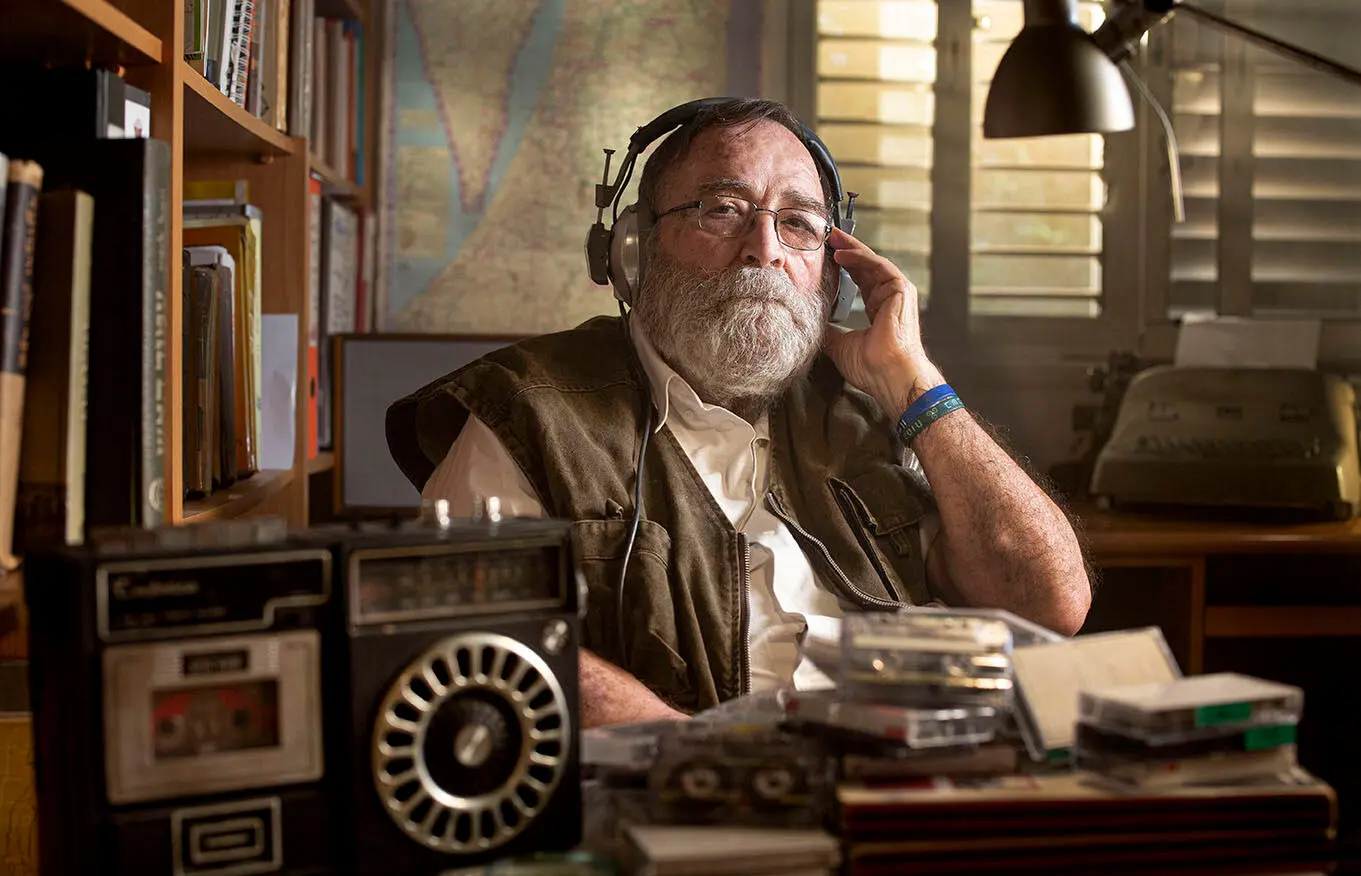A bearded man sits in an office wearing headphones, a cassette player and a stack of cassettes on the table in front of him.
Directed by Alon Schwarz
Documentary
1h 34m
The documentary “Tantura” has already reignited a controversy in Israel. More than 20 years ago, an Israeli graduate student named Teddy Katz submitted a thesis that examined events in the Palestinian village of Tantura in 1948. Drawing on dozens of interviews, he presented evidence suggesting that the Israeli Army had killed scores of Palestinians after capturing the village. In this version of history, Israel wasn’t fighting a war; it was committing a massacre.
Israeli veterans sued Katz, who recanted and un-recanted. In the documentary, a professor at Katz’s university says that the thesis was removed from the library shelves, and a title card suggests that the fallout ended Katz’s academic career. But the film, directed by Alon Schwarz, with Katz sharing a “research” credit, affords him a new chance to be heard. More crucially, it plays excerpts from the hours of taped oral testimony he kept.
“Tantura” rounds out these audio clips with on-camera interviews with historians; with Palestinians who were in Tantura in 1948; and with, particularly, Israeli former soldiers who were present and whose recollections vary. Outtakes from an MGM newsreel shot at the time show the abandoned village in a light not seen in the release cut. A specialist in land surveying compares aerial photographs from the 1940s to determine whether a parking lot may have covered over a mass grave.
But for visual interest, Schwarz barely needs to look further than his subjects. These include a judge who presided over Katz’s case; in a contemporary interview, she is initially dismissive of his ideas, but then, with a dog under her arm, listens to a recording and implies that Katz should have pressed his case further. Among the former soldiers, there are multiple moments of apparently nervous laughter. On tape and on camera, they say things like, “I’m trying to sidestep the subject” and “What can you do? It happened.”
The emerging film is not simply a persuasive augmentation of Katz’s argument, but also a disturbing portrait of how very human impulses — passivity, rationalization, social pressures — can shape the writing of history.
Tantura
Not rated. In Hebrew, Arabic and English, with subtitles. Running time: 1 hour 34 minutes. In theaters.




Post Your Comment
*It should be NOTED that your email address won't be shared, and all communications between members will be routed via the website's mail server.